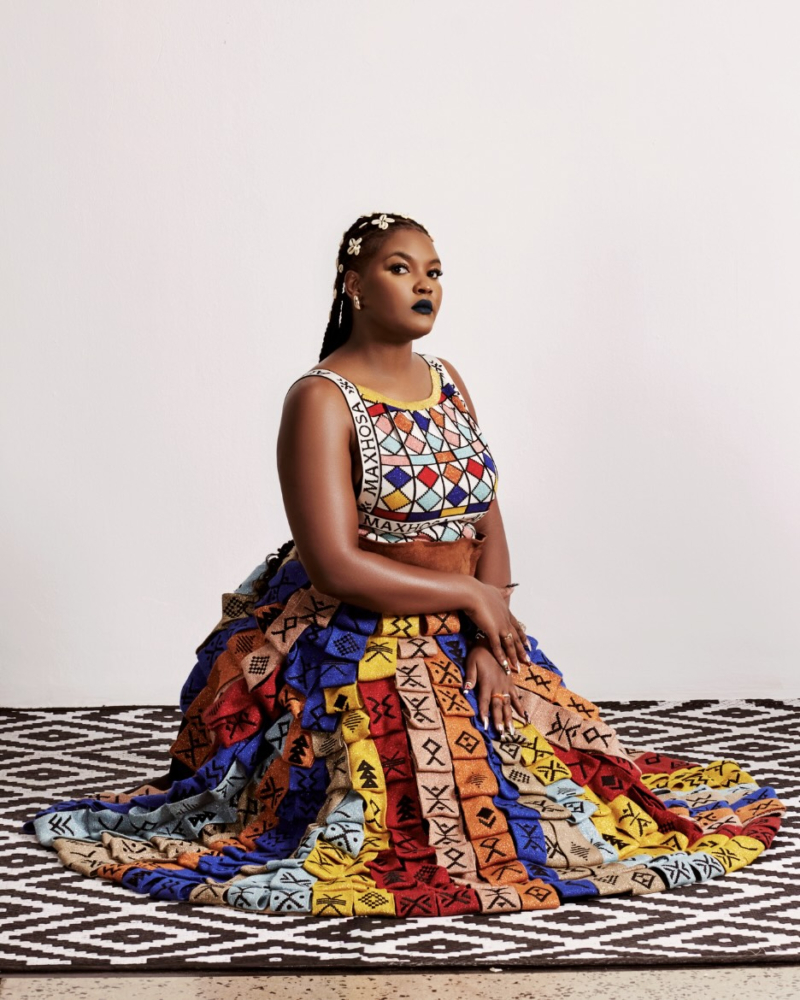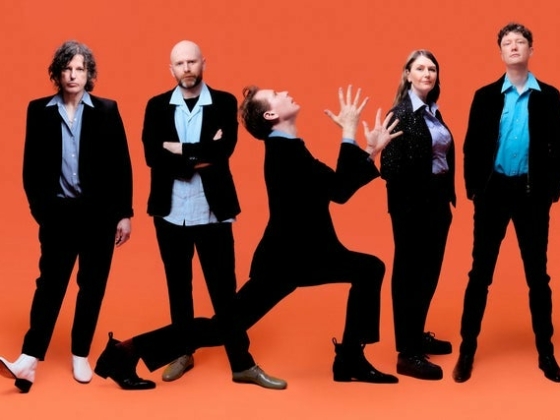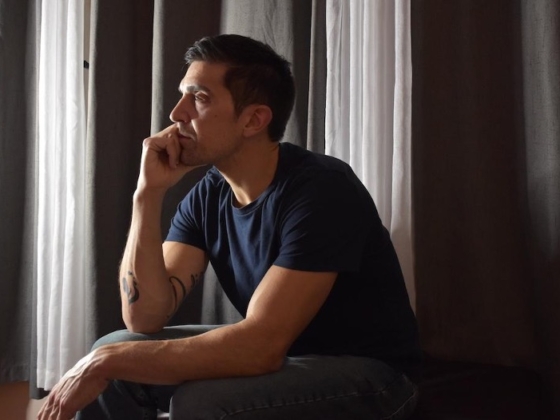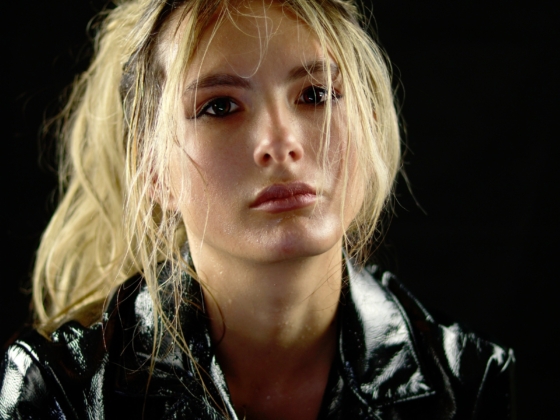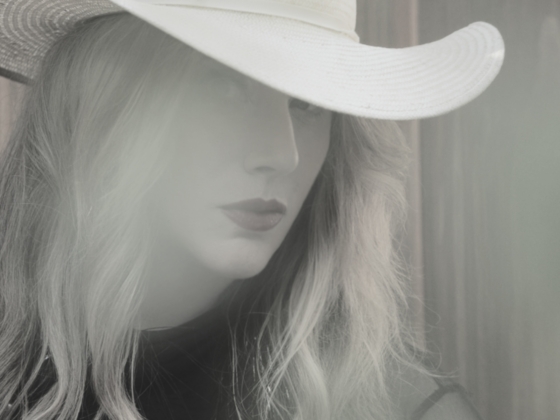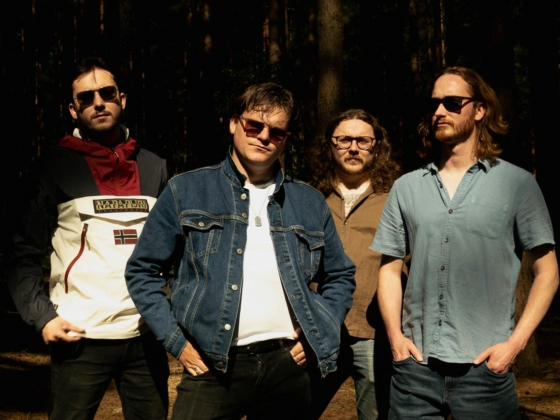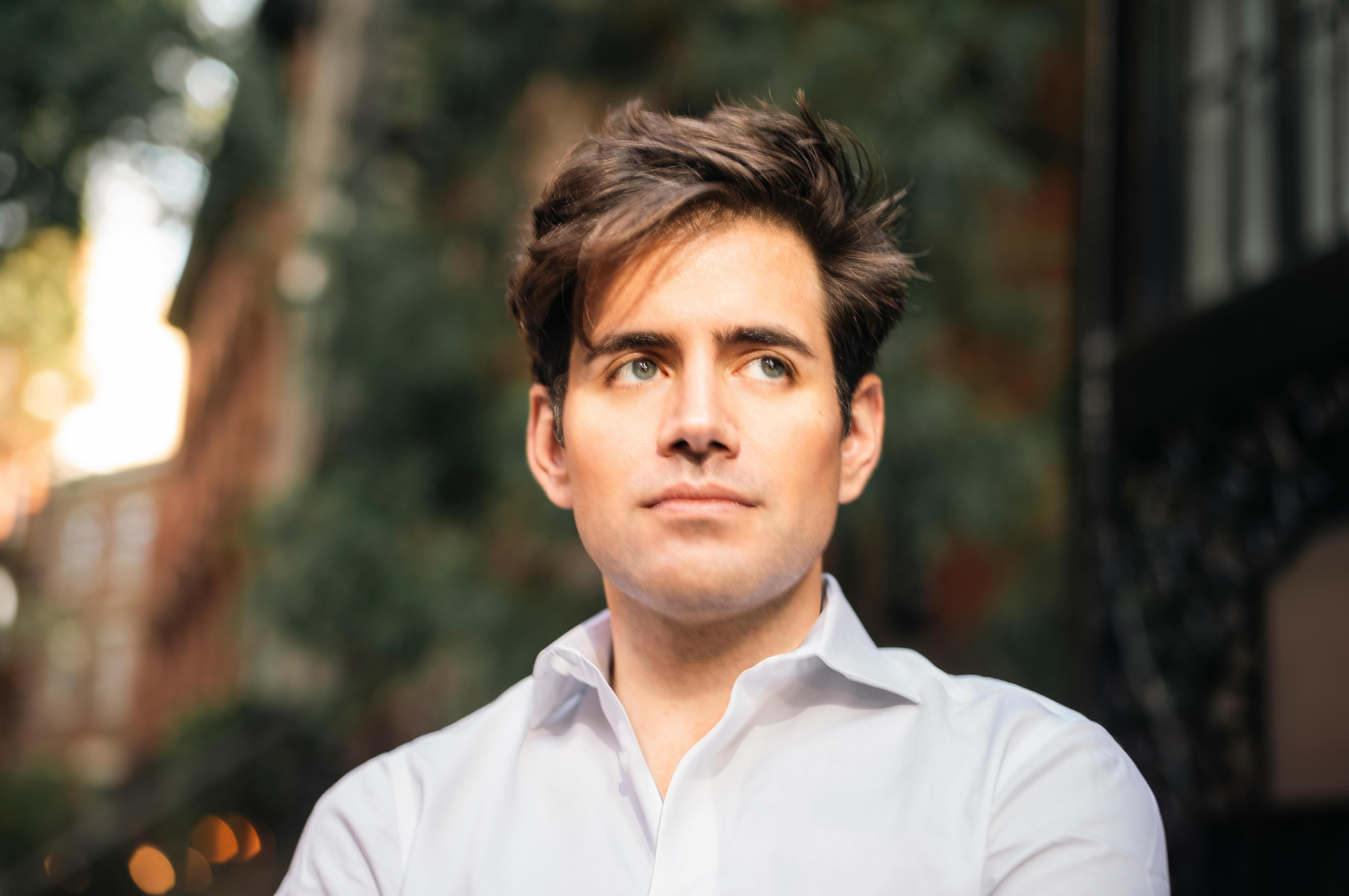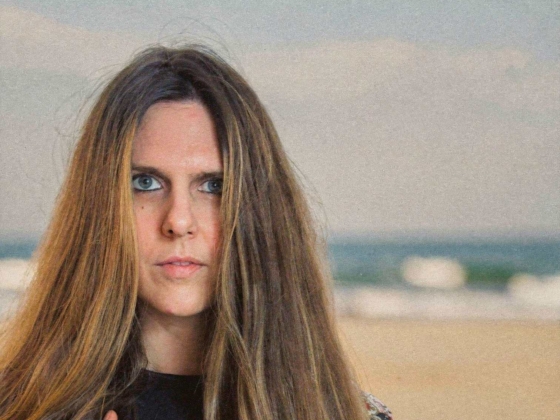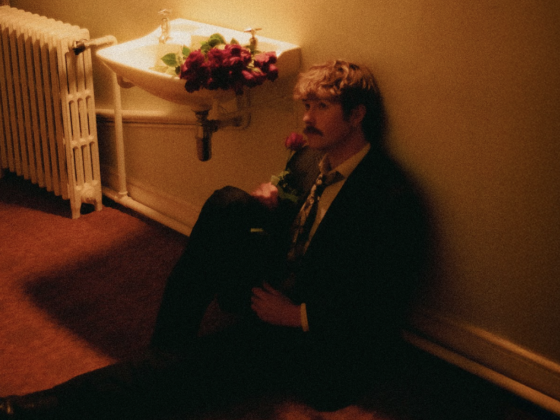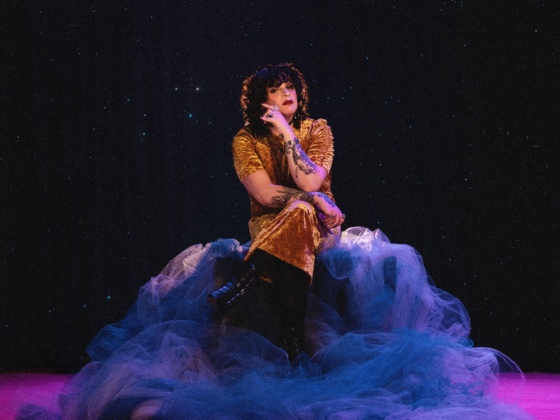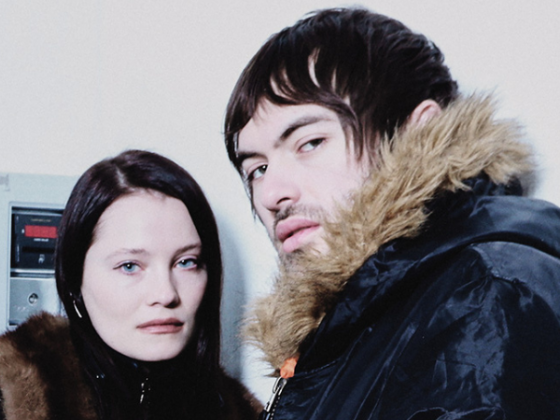Kenyan hitmaker Sofiya Nzau follows her 2023 hit "Mwaki," with another anthemic jam "META" featuring Nigerian afrobeats star Fireboy DML and South African Grammy-winning Nomcebo Zikode. The cross-country collaboration unites South, West, and East Africa in a grand style. The title means three in the Yoruba language and sees all three artists singing in their respective languages which adds an extra layer of exoticness and pride in their roots. The result is a dynamic fusion that captures the essence of modern Africa.
In this short interview with EARMILK, we dig deep into Sofiya Nzau's world, her unique story, and her process for crafting captivating songs.
Can you share a bit about your background and how you got started in music? What was the moment you knew music was your calling? Who are some of your biggest musical influences, both locally and globally?
I have been singing for a very long time. Around 2020, that corona year, that’s when I actually started seeing music as a big part of me. When I met my husband, I started songwriting, and it was promising because, as we were growing up, music was not something to focus on; it was more of a hobby. That is what we were taught, and there were no people around us who were doing music and could see it as a career or something important or promising. Even as we spoke to our parents, it was like, "You are not a serious person if you are actually focusing on acting." I don’t know if that was why I was not looking at it like that, but I believe it was a really big part of it. However, when I got to experience something different, it changed my mind.
I have listened to many different types of music. I can say the most influential person I have listened to is Lizwe from South Africa. When I was starting to learn Afro house, I listened to a lot of her music, and the way she approached the music with such traditional elements, like the ululations and her way of approaching the vocals and melodies, is very traditional. She is not afraid to just scream and express her heart and soul. As much as she is writing the music, and it is so cultural and so traditional, she is a big part of my music.
How would you describe your music styling, and how does it reflect?
I don't know if I should say folk or avant-folk, but I try to maintain my traditional ethnicity or elements in them. If we are from the same background or if you are from Africa, you will feel something cultural and traditional in it. If there is anything like avant-folk, yes, it has a lot of culture in it—story-wise, melody-wise, instrumental-wise. I like to feel something, and if you give me an instrumental and I don't feel culture in it, I will say, "I don't feel Africa in it," and I like to feel African in instrumentals. I know EDMs are different, but I can listen to EDM and be like, okay, I can merge these EDMs that I listen to and think, "This is very pop." It’s not bad, but I need to feel some culture. You don't necessarily have to use an African instrumental; it’s just something.
How many challenges have you faced in the music industry?
Right now, I can say it is more about understanding that not everyone is out here to help you. Taking every word to heart just because I am an honest person doesn't mean other people are honest. Just because I am here for change in our music industry doesn't mean everyone saying the same thing is actually here for the same. Learning that not everyone is here to help me, I think I have faced many challenges from people just taking advantage of me and my husband and our ignorance in the music industry. So many things that you don’t know, and then you get to know them, but then you're knowing them too late. Such challenges. But as a female, I can't say I have faced any challenges that are female-based.
How has the East African music scene evolved, and how does your music fit into the evolution?
Response: I feel like, just as outsiders have been so curious about Africa, now they are curious about African music. It is a good thing because, I don't know what it is about when one person accepts it, now everyone will accept it, but I can say that our music is being accepted outside because even our artists are being accepted outside of Africa. It’s a good thing for us to be comfortable in our culture and not try to fit in outside because, for so many years, so many artists have tried to fit in their R&B and hip-hop type of music because that's what everyone is consuming. But right now, we don't have to. We can just be as original as possible, and for my music, it’s the same. I use my native language, I use my culture as inspiration. I try to be as truthful and honest with everything as possible. I don't want to try and fit in with things that I don't even know or with words that I don't even know what they mean and what other people from different cultures are using, so I try to stay as original and as honest as possible with my lyrics.
What has been the most memorable experience and milestone in your career?
I think having to meet artists from my country and having to see how inspired they are by Mowaki or my musical journey—that has been amazing. I always say I don't want to do this music thing for me; I want to do it for other people. I want others to also be inspired by what I do because if I do it by myself, this is a very heavy thing or a very heavy burden to carry on my own. I need to tell my culture, and not by myself, but through other artists. In my country, we have fifty-six tribes, which means fifty-six different cultures and traditions, and I cannot tell that alone because I only know about my tribe. So, for me, to see an artist from a different area being inspired by my story—that has been one of the most memorable experiences. That is actually my joy. I can meet fans who are happy, but meeting an artist who is inspired—that's an amazing moment.
Who are some of the key collaborators or producers you've worked with, and how have they shaped your sound?
I think meeting different producers from South Africa. I can say South Africa because I have interacted with most of them. They're very hardworking and very unique because they try to do something that hasn't been done. They don't try to fit into something that has been; they are not trying to copy-paste stuff. They are trying to be authentic, and that is one of the things I love. There is one producer called Shifo Audio Audit, who isn’t that big, but they are amazing. They have taught me to stay original. They are amazing; they do amazing stuff.
Can you walk us through your creative process and writing in preparing an album?
When I am writing my songs, because I have written songs for other people for two years as work for hire, it is easier. I have learned not to overthink a song but also how to know when a song isn’t there yet. If it isn’t giving me chills or a different vibe, it won’t give my fans that. So, when I write my music, most of the time, I do it with my husband, or if I do it alone, I can’t submit something until he listens to it. Unless I’m a thousand percent sure it’s good, most times he has to listen. If I’m following up on something, he’s the one I’m comfortable asking, no matter who it is. If he says it’s good, it’s good; if he says it’s fire, it’s fire. Sometimes, I’ll doubt and ask him which one he thinks is better, things like that. If I am writing albums, we have to listen to them. Sometimes, I listen to them with my friends and try to see which artist will fit better if I want a collab. But most of the time, I do that with my husband. My experience comes from my culture, my traditions, personal experiences, and other people’s stories. I love using other people's stories or twisting them into something else—not necessarily people’s experiences, but just getting inspired by them.
How do you balance staying true to your roots while also experimenting with new sounds and genres?
I’d say that since there is nothing else I know, it makes it easier. I haven’t been to America, so I don’t know anything about American culture. Yes, there’s what I have seen in movies, which most artists use, but for me, I’m not comfortable doing that. What I know is what I use, and that is all I know. I know about my culture; I don’t know anything else, so it’s easy to stay grounded. Probably, once I go out, I will try and experience other cultures and be able to write from them. But, for now, this is what I know, this is what I have experienced, so it’s easy to stay grounded as a female artist.
In a male-dominated industry, what kind of support or mentorship exists for young women in music?
There was a time I spoke to one of the female DJs in South Africa, and she told me things I didn’t even know existed. When I view myself as an artist, I have never once viewed myself as a female artist—just as an artist. I don’t think there is a difference between male and female artists; there are just artists. Art is art. It doesn’t matter who created it, whether female or male. My best advice is, and I don’t know if this is me being ignorant, but like I said before, I have never experienced any female-type challenges. Maybe the reason I haven’t noticed is that I don’t view myself as a female artist. I am an artist, that’s it.
How do you feel about the representation of women in East Africa? Is there enough space for women to tell their own stories and express themselves freely?
Hmm, I feel like there are chances; the doors are open for female artists to express themselves. But I will say again, I feel like we have something in our heads that tells us, "Just because I’m a woman, I cannot do this, or my journey will be tougher, or I need this to be this." I speak to women, and I tell them, "I feel like we are our own enemies." And I don’t mean women to women—I mean, I’m my own enemy sometimes." I think it’s not that there aren’t opportunities; it’s more about the limitations we place on ourselves. We often internalize these ideas that, as women, we need to work twice as hard, or we need someone else’s permission or validation, and that can hold us back. In East Africa, I see many doors open, but we still have this mentality that we need more support than we actually do. We need to trust in our abilities and move forward with confidence.
There’s a need to encourage each other more, yes, but it starts with us believing in ourselves and being willing to take risks. I think if we step out of that mindset of needing validation, we’ll see that there’s plenty of space for us to tell our stories and express ourselves freely. Opportunities are here, and I believe that once we stop holding ourselves back, we can use them to the fullest.
How many challenges have you faced in the music industry?
Right now, I can say it’s more about not understanding that not everyone is out here to help you. Taking every word to my heart just because I am an honest person doesn’t mean other people are honest. Just because I am here for change in our music industry doesn’t mean everyone who says the same thing is actually here for the same. Learning that not everyone is here to help me, I think I have faced many challenges of people just taking advantage of me and my husband, and our ignorance in the music industry. So many things you don’t know, and then you get to know them, but it’s too late. But as a female, I can’t say I have faced any challenges that are specifically female-based.
How has the East African music scene evolved, and how do you feel your music fits into the evolution?
I feel like just as outsiders have been so curious about Africa, now they’re curious about our music. It’s a good thing because, I don’t know, when one person accepts it, suddenly everyone accepts it. Our music is being accepted outside because even our artists are being accepted outside of Africa, and it’s a good thing for us to be comfortable in our culture and not try to fit in outside. For so many years, so many artists tried to fit into RnB and hip-hop because that’s what everyone was consuming, but now we don’t have to. We can be as original as possible. In my music, it’s the same. I use my native language, I use my culture as inspiration. I try to be as truthful and honest as possible. I don’t want to try and fit into things I don’t even know, with words and meanings from other cultures, so I stay as original and as honest as possible with my lyrics.
What has been the most memorable experience and milestone in your career?
I think meeting artists from my country and seeing how inspired they are by my music or my journey has been amazing. I always say I don’t want to do this music thing just for me; I want to do it for other people, for others to be inspired by what I do. Doing it alone is a very heavy burden. I need to tell my culture’s story, not just by myself but through other artists. In my country, we have fifty-six tribes, which means fifty-six different cultures and traditions, and I cannot tell all that alone because I only know about my own. So, for me, to see an artist in a different area inspired by my story has been one of the most memorable experiences and is truly my joy. Meeting fans is nice, but meeting an artist who is inspired—that’s an amazing moment.
Who are some of the key collaborators or producers you've worked with, and how have they shaped your sound?
I think meeting different producers from South Africa has been significant. I can say South Africa because I’ve interacted with most of them. They’re very hardworking and unique because they try to create something that hasn’t been done before. They don’t try to fit into something existing; they don’t copy-paste. They aim for authenticity, which I love. One producer, Shifo Audio, isn’t widely known yet, but they’re amazing. They’ve taught me to stay original, and they’re fantastic at what they do.
Can you walk us through your creative process and writing when preparing an album?
When I am writing my songs—I’ve written songs for other people for the past two years as work-for-hire—so it’s easier now. I’ve learned not to overthink a song, but I also know when a song isn’t there yet. If it’s not giving me chills, if it’s not giving me a different vibe, it’s not going to give my fans that feeling either. Most times, I write my music with my husband, and if I do it alone, I’m not comfortable calling it final until he listens. Unless I’m a thousand percent sure, he has to listen. If he says it’s good, it’s good; if he says it’s fire, it’s fire. Sometimes, I’ll doubt myself and ask his opinion on which version is better. When I’m working on albums, we listen to them together, and I sometimes involve friends to decide which artist might fit for a collaboration. My experience draws from my culture, traditions, personal experiences, and other people’s stories. I love using others’ stories or twisting them into something else, not necessarily people’s real experiences but just drawing inspiration from them.
How do you balance staying true to your roots while also experimenting with new sounds and genres?
I’d say it’s because there’s nothing else I know. I haven’t been to America, so I don’t know much about American culture. Yes, I’ve seen things in movies, which many artists reference, but for me, I’m not comfortable with that. So, I work with what I know, my culture, and that’s all I know. This makes it easy to stay grounded. If I eventually travel, I might explore other cultures and write from that experience, but for now, this is what I know, and that’s why it’s easy to stay rooted.
In a male-dominated industry, what kind of support or mentorship exists for young women in music?
There was a time I spoke to a female DJ in South Africa, and she told me things I didn’t even know existed. When I see myself as an artist, I don’t see myself as a female artist, just an artist. I don’t think there’s a difference between male and female artists; art is art. It doesn’t matter who creates it, whether female or male. My best advice is to view yourself simply as an artist. I haven’t experienced challenges specific to being female in the industry, maybe because I don’t view myself that way. I see myself as an artist, that’s it.
How do you feel about the representation of women in East Africa? Is there enough space for women to tell their stories and express themselves freely?
Hmm, I feel like there’s a chance. We have opportunities; doors are open for female artists to express themselves. But I also feel like we sometimes have this mindset that tells us, “I’m a woman; I cannot do this,” or “My journey will be tougher, so I need extra support.” I often tell women that we’re sometimes our own biggest barrier, not women to women but ourselves individually. If I’m not pushing myself to do what I know is in my heart, that’s on me. In Africa, there’s often the idea of asking your husband for support or approval, but we also have to push for our visions because they are ours. When others don’t see the vision, it’s still up to us to push forward.
Connect with Sofiya Nzau, : Youtube | Facebook | Twitter/X | Instagram

